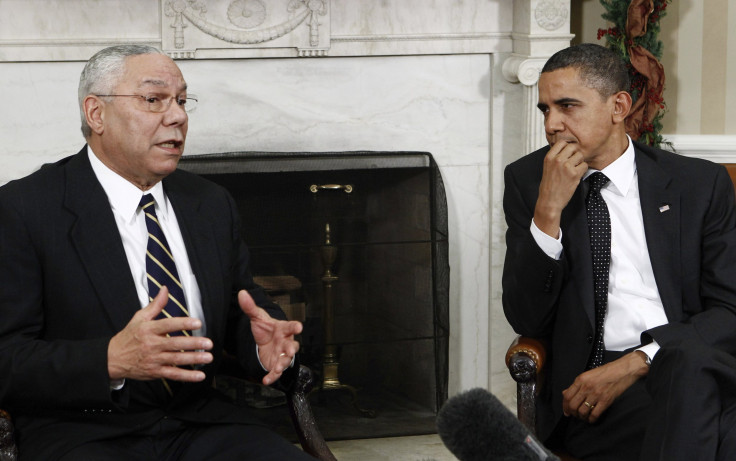How Does The President Affect The Economy? Experts Say October Jobs Report Shouldn't Matter

The level of frustration Americans have with the economy has only raised since the political rhetoric from Democrats and Republicans has spun the same statistics to suit their different ideologies. After the October jobs report was released Friday and showed an uptick in both hiring and unemployment, President Obama filed it as a victory while Mitt Romney deemed it just another failed promise from the incumbent. The question remains, though, how much of an effect any president has on the economy.
“In 2008, we were in the middle of two wars and the worst economic crisis since the Great Depression. And today, our businesses have created nearly five and a half million new jobs,” Obama said after the October jobs report was released. “And this morning we learned that companies hired more workers in October than at any time in the last 18 months.”
CBS News reported that the president’s stance on the final jobs report of the campaign season is very different from his talking points after September yielded the slowest growth of the Obama administration.
There’s no doubt Mitt Romney and the Republicans would disagree with Obama’s assessment, but labor economist Betsy Stevenson told the Washington Post October’s job numbers don’t lie. The reason for so many payroll revisions from companies this month and in the months prior, she said, is simple.
“Why are so many revisions upward right now? Because revisions are more likely to be up in a recovery,” Stevenson said.
Bipartisan economists told Freakanomics Radio earlier this year that, regarding the economy, the president is like a co-pilot of a plane that’s already on autopilot. The most common analogy among economists was of sports fans. Democrats get mad when a Republican fares poorly on the economy and he GOP attacks Democrats perceived to be in the wrong.
Experts acknowledged there is no magic wand that’s able to lower gas prices or make companies hire more people.
Caltech economist and political scientist Erik Snowberg said it’s just easy for the public to pin blame on a face and ignore a larger series of potential issues.
“It seems that the public thinks that the president matters a lot more than our academic research would suggest. There is, actually, some academic research that shows that in counties that are very heavily Democrat, if a Republican wins the presidential election, in the fourth quarter of that year, consumption declines quite a bit. It can decline somewhere between 4 to 8 percent,” Snowberg said.
“So that seems to indicate that people think that it matters quite a bit more than it does. The argument in the political-science literature is that it’s like rooting for a team: when your team does really badly, you get upset. People end up spending a lot less money and that doesn’t seem to be borne out by the effects we note in the broader economy.”
Former Secretary of Defense under President Bush Donald Rumsfeld, who has been supportive of Mitt Romney during the 2012 campaign, said that the president’s job on the economy is very different from that of a CEO.
“Well, they’re really very, very different, and being good at one doesn’t suggest that one would necessarily be good at the other,” Rumsfeld told Freakanomics. “In business, conversely, I mean I could go into a corporation and decide that I want to freeze the dividend, and I could do it as CEO. I could decide I’m going to open a research facility in country X instead of Country Y. I could decide I’m going to downsize or sell off a division, and I did it. And you can be wrong, as well as right, to be sure. But at least you are able to do it.
“You know, in government, if we put something in place, in one of the departments or agencies, the Congress wants to have hearings on it, they want to pull the plant up by the roots every five minutes to see if it’s still growing and traumatize it, and the press wants to critique it before it’s even fifteen minutes old. It’s enormously different.”
© Copyright IBTimes 2025. All rights reserved.





















